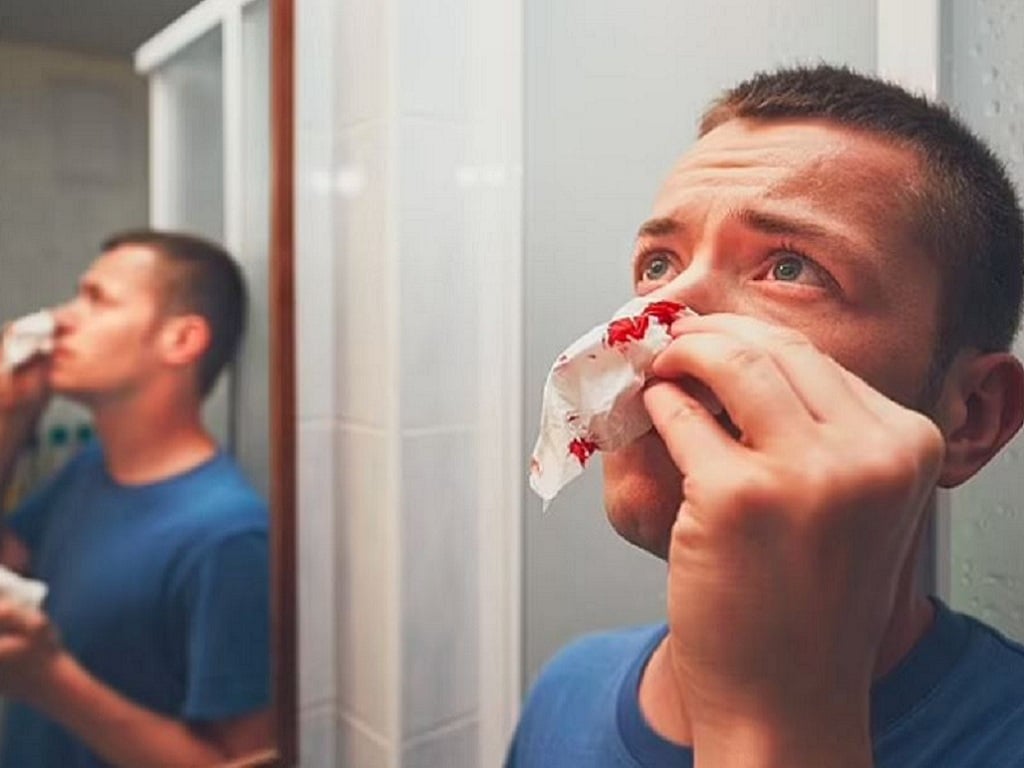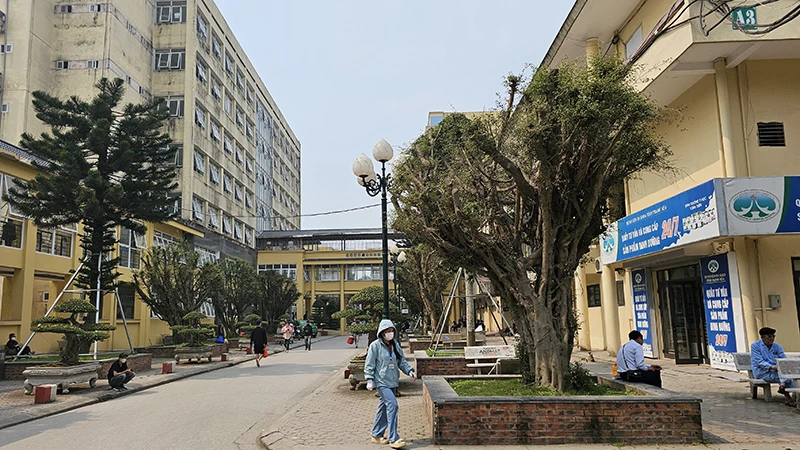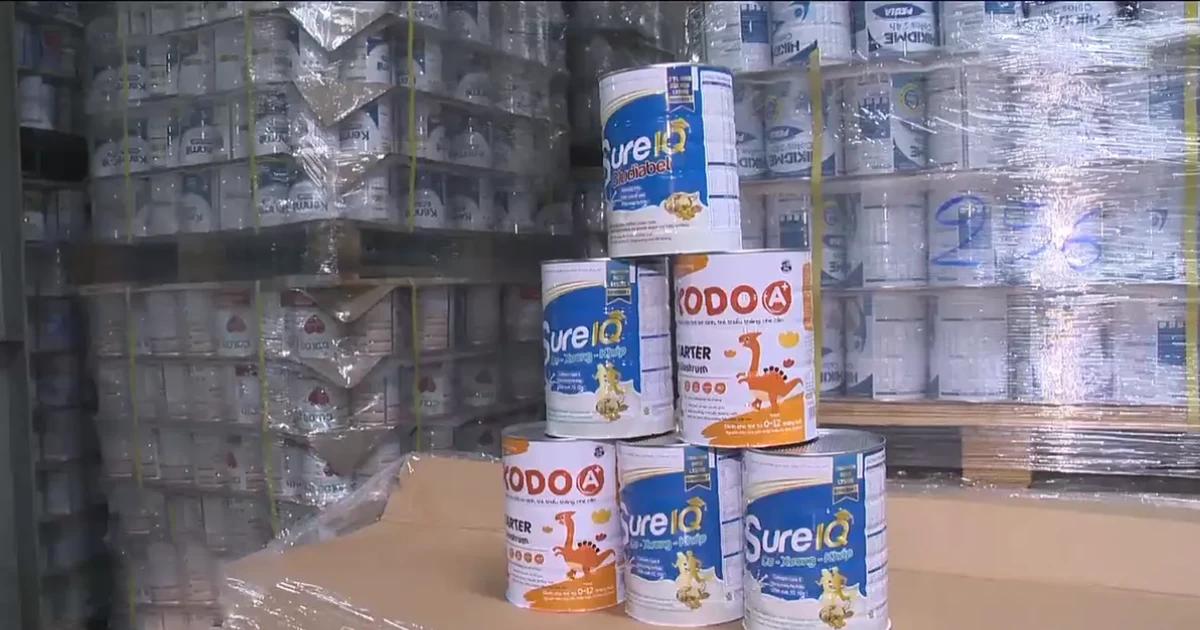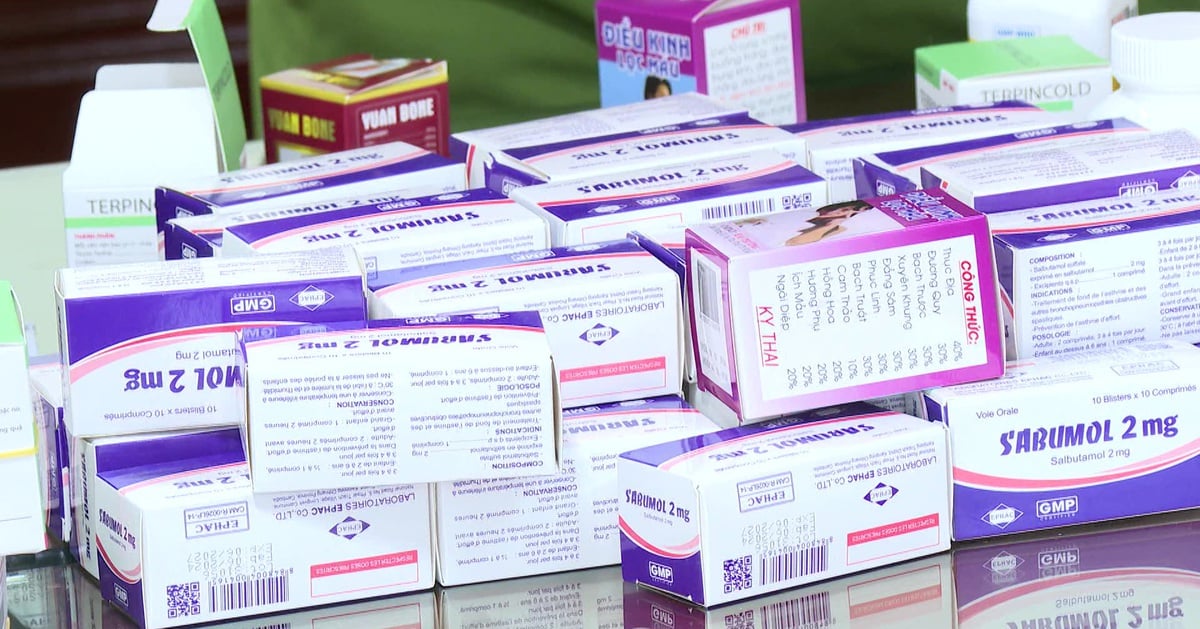Although nosebleeds are not a serious health problem, they can be alarming to some people, especially when the bleeding is heavy. Since they are not a serious symptom, nosebleeds can be treated at home, according to the Indian Express newspaper.

Hot, dry weather in the summer can easily dry out the lining of the nose and cause nosebleeds.
Experts say there are many causes of nosebleeds. But with summer nosebleeds, the cause is often due to hot, dry air.
During the summer months, temperatures in many countries rise. Not only is the weather hotter, it is also drier. This makes the lining of the nose more susceptible to cracking and nosebleeds.
Another problem with the nose is heat allergies. This condition can lead to inflammation of the nasal mucosa. These factors, combined with the habit of picking your nose and sniffing hard, can cause damage to the nasal mucosa, leading to nosebleeds. If a nosebleed is already occurring, sniffing hard will cause more bleeding.
The common symptoms of nosebleeds are that blood usually flows from only one side of the nose. In some severe cases, the patient's nose will be filled with blood due to excessive bleeding.
Excessive blood loss can cause dizziness, lightheadedness, and even fainting. However, it is rare for anyone with a nosebleed to experience these symptoms. Complications from nosebleeds are rare. However, people should see a doctor if the bleeding is frequent.
To reduce the risk of nosebleeds in the summer, experts recommend that people moisten their nasal mucosa, trim their fingernails, avoid allergens, and not sniff too hard.
To keep the nasal mucosa moist, it is good to use a nasal spray or a humidifier in the room. People should limit the habit of picking their nose. For children, parents should cut their fingernails short to avoid scratching the inside of the nose when the child picks his nose.
For those who are prone to nosebleeds in the summer, it is best to avoid factors that can irritate the nose such as cigarette smoke, polluted air or chemical fumes. In addition, when sniffing, do not sniff hard but sniff gently and slowly. This will reduce the risk of damaging the nose, according to The Indian Express.
Source link



![[UPDATE] April 30th parade rehearsal on Le Duan street in front of Independence Palace](https://vstatic.vietnam.vn/vietnam/resource/IMAGE/2025/4/18/8f2604c6bc5648d4b918bd6867d08396)


![[Photo] Prime Minister Pham Minh Chinh receives Mr. Jefferey Perlman, CEO of Warburg Pincus Group (USA)](https://vstatic.vietnam.vn/vietnam/resource/IMAGE/2025/4/18/c37781eeb50342f09d8fe6841db2426c)























































































Comment (0)